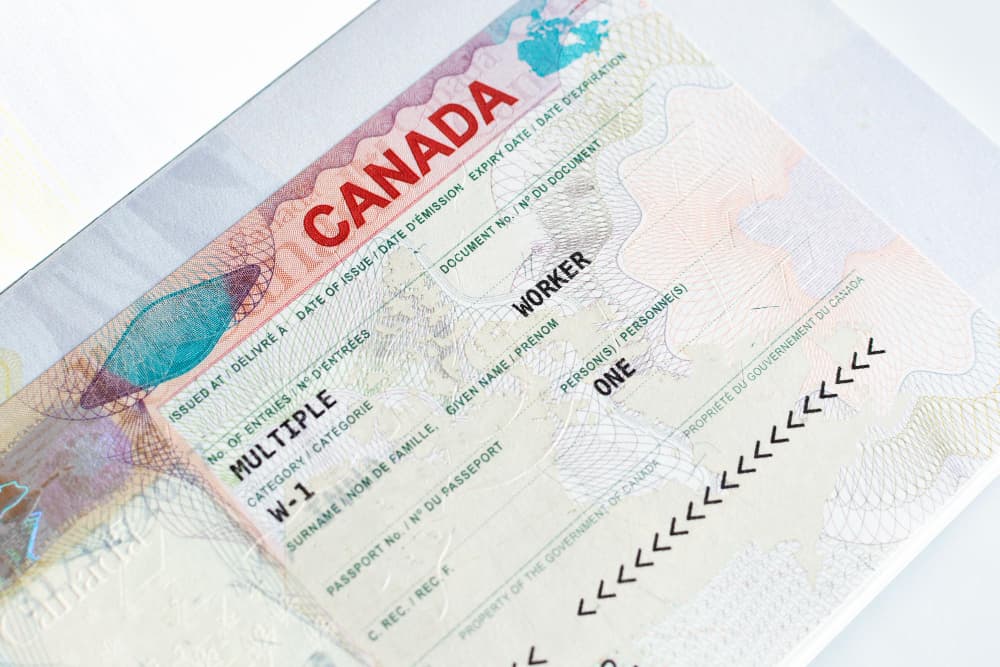If you’re a citizen of Colombia or Mexico who is interested in working in Canada, you might be wondering what kind of job opportunities are available to you. One option to consider is a job that is LMIA-exempt. LMIA stands for Labour Market Impact Assessment, which is an authorization/permit that employers in Canada need to obtain before they can hire foreign workers.
However, there are certain types of jobs that are exempt from this requirement. In this article, we will explore what LMIA-exempt jobs are and how they can benefit Colombians or Mexicans who want to work in Canada.
LMIA-exempt jobs are positions that are considered to be in the best interests of Canada, such as those that contribute to economic, cultural, or social development. These jobs are exempt from the LMIA requirement because they are deemed to have a positive impact on Canada and its workforce. Examples of LMIA-exempt jobs include certain types of caregivers, researchers, academics, and entrepreneurs.

For citizens of Colombia or Mexico who want to work in Canada, LMIA-exempt jobs can be a great option. One of the main benefits is that Canadian employers do not need to obtain a positive or neutral LMIA in order to hire Colombians or Mexicans for certain occupations. This means that Canadian employers are not required to go through the onerous LMIA process if they would like to hire a citizen of Mexico or Columbia for certain occupations designated by Free Trade Agreements.
Another benefit of LMIA-exempt jobs is that they can provide a pathway to permanent residency in Canada. Some LMIA-exempt jobs are classified as “skilled” or “semi-skilled” and are eligible for the Express Entry program. This Express Entry programs allow skilled foreign workers to apply for permanent residency in Canada based on their work experience, education, and language abilities.
By working in an LMIA-exempt job, Colombians and Mexicans can gain work experience that would potentially qualify them for the Canadian Experience Class of Express Entry, through which they can achieve permanent residency.

There are several types of LMIA-exempt jobs that Colombians can consider. Here are a few examples:
Colombians who have experience as nannies, home care providers, or personal care assistants can apply for a work permit as a caregiver. This type of work permit is valid for two years and can be renewed.
Colombians who are conducting research or teaching at a Canadian university or research institution can apply for a work permit under the International Mobility Program. This type of work permit is valid for the duration of the research project or academic appointment.
Colombians who want to start a business in Canada can apply for a work permit under the International Mobility Program. To be eligible, you must have a business plan that has been approved by a designated organization in Canada.
The Canada-United States-Mexico Agreement (CUSMA) is a free trade agreement that was signed in 2018, replacing the North American Free Trade Agreement (NAFTA). CUSMA allows for easier trade and investment between the three countries, but it also provides opportunities for skilled workers to seek employment in another country.
In this article, we will explore what CUSMA Professionals are and how they can benefit skilled workers looking for opportunities in North America.

CUSMA Professionals are skilled workers who are citizens of Canada, the United States, or Mexico and work in specific professions. These professions are listed in Appendix 12-A of the CUSMA agreement and include a wide range of occupations, such as accountants, engineers, scientists, and teachers. To qualify as a CUSMA Professional, the individual must have a job offer from an employer in one of the other CUSMA countries and meet the qualifications specified for their profession.
For skilled workers in Canada, the United States, or Mexico, CUSMA Professionals can provide a pathway to work in another country. With the job offer from an employer in another CUSMA country, the skilled worker can apply for a work permit under the CUSMA agreement. This can provide opportunities for professional growth, cultural exchange, and higher salaries.
In addition, CUSMA Professionals can benefit from faster and easier processing of work permits. Under CUSMA, each country has committed to processing work permit applications for CUSMA Professionals within 30 days. This can reduce the waiting time for skilled workers and provide more certainty in the job search process.

To qualify as a CUSMA Professional, the individual must meet the following requirements:
The individual must be a citizen of Canada, the United States, or Mexico.
The individual must work in one of the professions listed in Appendix 12-A of the CUSMA agreement.
The individual must meet the educational and/or experiential requirements specified for their profession in Appendix 12-A.
The individual must have a job offer from an employer in one of the other CUSMA countries that is related to their profession.
The individual must intend to work in the other CUSMA country temporarily and return to their home country at the end of their work permit.
Here are some examples of professions that are included in Appendix 12-A of the CUSMA agreement:
Certified or chartered accountants, including auditors, tax consultants, and financial analysts.
Professionals who design, develop, or test machinery, structures, or systems.
Professionals who conduct research in the natural sciences, including biologists, chemists, and physicists.
Professionals who teach at the college or university level, including professors, instructors, and researchers.
LMIA-exempt jobs can be a great option for Colombians and Mexicans who want to work in Canada. If you are interested in working in Canada, consider exploring LMIA-exempt jobs and see if there is a job that aligns with your skills and experience.
By the same token, CUSMA Professionals provide opportunities for skilled workers to seek employment in another CUSMA country. With faster and easier processing of work permits, skilled workers can pursue professional growth, cultural exchange, and higher salaries.
If you are a skilled worker in Canada, the United States, or Mexico, and work in one of the professions listed in Appendix 12-A of the CUSMA agreement, consider exploring the opportunities that CUSMA Professionals can offer.

